Air Minicabs: The Future of Urban Air Travel
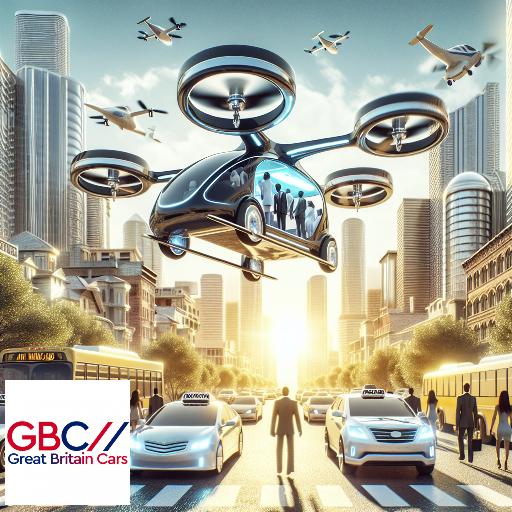
Air transfers: The Future of Urban Air Travel
Air transfers are set to revolutionize the future of urban air travel. These innovative, eco-friendly vehicles are designed to navigate city skies, offering a new dimension to urban commuting. The concept of Air transfers is a response to the growing need for efficient, congestion-free transportation in densely populated cities. These futuristic transfers are expected to be autonomous, reducing the risk of human error and increasing safety. They will be powered by electricity, contributing to a reduction in carbon emissions and noise pollution. With vertical take-off and landing capabilities, they won't require extensive infrastructure like traditional airports. Air transfers will not only provide a faster alternative to ground transportation but also offer a unique, panoramic view of the cityscape. They are predicted to be a game-changer in the transportation industry, transforming the way we perceive and experience urban commuting. The future of urban air travel is on the horizon, and it's looking up with Air transfers.
Regulations and Safety Concerns
As urban air travel evolves, the advent of air transfers is becoming a reality. However, this futuristic mode of transportation brings with it a host of regulations and safety concerns. Regulatory bodies worldwide are grappling with the challenge of integrating these flying transfers into existing airspace, without compromising safety. Key issues include collision avoidance, emergency landing provisions, and passenger safety during flight. Moreover, there's the question of pilot training and certification for these new vehicles. The technology behind air transfers is vastly different from traditional aviation, necessitating a new set of skills and knowledge. Additionally, there are concerns about noise pollution and the environmental impact of these vehicles. Regulations will need to address these issues to ensure sustainable urban air travel. In conclusion, while air transfers promise a revolution in urban transportation, their safe and successful integration into our cities will depend on comprehensive and forward-thinking regulations. The future of urban air travel is exciting, but it must be approached with caution and responsibility.
Technological Advancements
Technological advancements are revolutionizing the way we travel, and air transfers are at the forefront of this transformation. These futuristic vehicles, also known as flying transfers or eVTOLs (electric Vertical Take-Off and Landing), are set to redefine urban air travel. They promise to offer a faster, cleaner, and more efficient mode of transportation, reducing traffic congestion and carbon emissions. Companies like Uber and Airbus are investing heavily in this technology, with prototypes already in testing stages. The integration of AI and machine learning is expected to make these air transfers autonomous, further enhancing their efficiency and safety. However, there are still challenges to overcome, including regulatory hurdles and public acceptance. Despite these, the future of urban air travel looks promising with the advent of air transfers. As technology continues to evolve, the dream of hopping into a flying transfer could soon become a reality.
Environmental Impact
The future of urban air travel is set to revolutionize the transportation industry with the introduction of air transfers. However, the environmental impact of this innovation is a significant concern. Air transfers, while promising a solution to traffic congestion and faster travel times, could potentially increase carbon emissions, contributing to global warming. The noise pollution from these flying vehicles is another environmental issue that needs addressing. However, companies developing air transfers are aware of these challenges and are working towards creating eco-friendly solutions. Electric-powered air transfers are being developed to reduce carbon emissions, while noise reduction technologies are being incorporated to minimize sound pollution. The future of urban air travel hinges on the balance between technological advancement and environmental sustainability. As air transfers become a reality, it is crucial that their environmental impact is minimized to ensure a sustainable future for urban air travel.
Economic Implications
The future of urban air travel is set to revolutionize the transportation industry with the introduction of air transfers. This innovative concept, while promising a new era of convenience and efficiency, also brings significant economic implications. Firstly, air transfers could potentially reduce congestion on city roads, leading to increased productivity and economic growth. The time saved from reduced traffic could be utilized in more economically productive activities. Secondly, the development and operation of air transfers would create new jobs and stimulate economic activity in sectors such as manufacturing, technology, and service. However, the high costs associated with the development, maintenance, and operation of air transfers could pose a challenge. These costs could translate into high fares for passengers, limiting the accessibility of this service to a smaller, wealthier demographic. In conclusion, while air transfers present an exciting prospect for urban air travel, careful consideration must be given to their economic implications to ensure their sustainable and equitable integration into our cities.
Key Players in the Industry
The urban air travel industry is set to revolutionize the way we commute, with air transfers being at the forefront of this change. Key players in this industry include Uber Elevate, Volocopter, and Lilium. Uber Elevate, a branch of the popular ride-hailing service, aims to provide aerial ridesharing in the world's busiest cities by 2023. German-based Volocopter is another significant player, having already conducted successful test flights of its electric air transfer. The company aims to make air transfers a reality in the next 2-3 years. Lilium, another German company, has developed a five-seater jet-powered air transfer. It completed its maiden flight in 2019 and aims to launch commercial operations by 2025. These companies, along with others, are working towards making air transfers a reality, promising to drastically reduce commute times and transform urban air travel.
Public Perception and Acceptance
The future of urban air travel is set to be revolutionized with the introduction of air transfers. This innovative concept, which involves small, autonomous aircraft providing a transfer-like service, is gaining traction globally. However, public perception and acceptance are crucial for its successful implementation. The idea of air transfers is appealing due to its potential to alleviate traffic congestion and reduce travel time significantly. However, safety concerns, noise pollution, and affordability are some of the issues that could affect public acceptance. Surveys indicate a mixed response. While some are excited about the prospect of flying transfers, others express apprehension about the safety and practicality of such a service. To ensure public acceptance, it is essential for companies to address these concerns effectively. Rigorous safety testing, noise reduction technology, and competitive pricing could be key to winning public trust. In conclusion, while air transfers hold great promise for the future of urban air travel, their success largely depends on public perception and acceptance.
Pilot Training and Skills
The future of urban air travel is set to be revolutionized by the advent of air transfers. This innovative concept requires a new breed of pilots, necessitating specialized training and skills. Pilot training for air transfers involves mastering vertical take-off and landing, navigating through urban landscapes, and understanding the complexities of air traffic in densely populated areas. These pilots must also be adept at handling emergencies in a variety of scenarios, from technical malfunctions to unpredictable weather conditions. The training also emphasizes the importance of customer service, as these pilots will be interacting directly with passengers. The skills required for this new era of urban air travel are not just technical, but also interpersonal. As air transfers become more prevalent, the demand for such uniquely trained pilots is set to increase. This marks an exciting new chapter in aviation, blending traditional piloting skills with cutting-edge technology and customer-focused service.
Infrastructure Requirements
The future of urban air travel is set to be revolutionized by the advent of air transfers. However, this innovative mode of transport requires a robust infrastructure to ensure its seamless operation. Key among these requirements is the establishment of vertiports - specialized facilities for takeoff and landing of these air transfers. These vertiports need to be strategically located to maximize accessibility while minimizing noise pollution. Additionally, a comprehensive air traffic management system is crucial to coordinate the movement of numerous air transfers, ensuring safety and efficiency. This system should be capable of real-time monitoring and communication to prevent any potential collisions or accidents. Moreover, the infrastructure should also include maintenance and charging facilities for these electric-powered air transfers. Given the high energy demands of these vehicles, the availability of fast-charging stations is essential. In conclusion, while air transfers promise a new era of urban air travel, their successful implementation hinges on the development of a comprehensive and efficient infrastructure.
Potential Challenges and Solutions
Air transfers, the future of urban air travel, are not without potential challenges. The primary concerns include safety, noise pollution, and infrastructure. Accidents could be catastrophic, and the noise generated by these vehicles could disrupt urban life. Moreover, the lack of existing infrastructure for takeoff, landing, and maintenance poses a significant hurdle. However, solutions are emerging. For safety, rigorous testing and regulatory standards are being developed. Noise pollution can be mitigated by designing quieter engines and implementing strict flight paths. As for infrastructure, rooftops and existing helipads could be repurposed for air transfers. In conclusion, while air transfers present several challenges, they also offer innovative solutions. With careful planning and regulation, they could revolutionize urban travel, providing a fast, efficient, and environmentally friendly alternative to traditional road transport. The future of urban air travel is on the horizon, and it's looking promising.
Our Latest Blog Posts
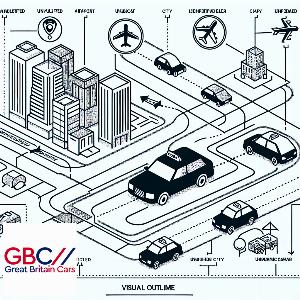
Stansted to City Center: Minicab Travel Simplified
Blog about Stansted to City Center: transfer Travel Simplified
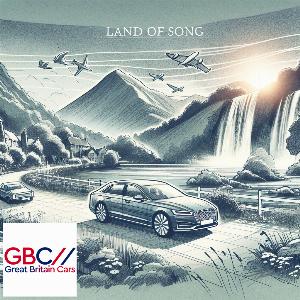
Heathrow to the Welsh Valleys: Exploring the Land of Song
Blog about Heathrow to the Welsh Valleys: Exploring the Land of Song
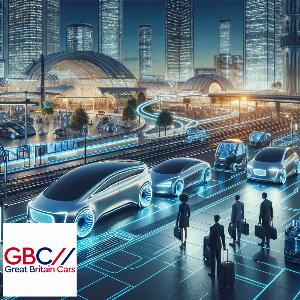
Gatwicks Finest: Selecting a Minicab for Your Journey
Blog about Gatwicks Finest: Selecting a transfer for Your Journey

Luton to the Heart of the Lake District: Wordsworths Inspiration
Blog about Luton to the Heart of the Lake District: Wordsworths Inspiration
Blogs Pages
Heathrow to the Heart of Wales: Exploring Welsh Culture and Landscapes
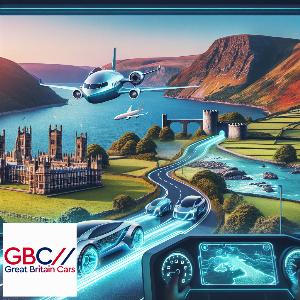
Blog about Heathrow to the Heart of Wales: Exploring Welsh Culture and Landscapes...
Luton to Nottinghamshire: Discovering Robin Hoods Realm
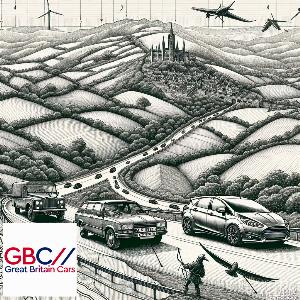
Blog about Luton to Nottinghamshire: Discovering Robin Hoods Realm...
Gatwick to Historic Harrogate: Spa Towns and Gardens
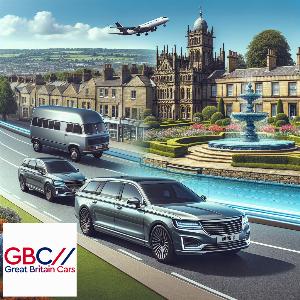
Blog about Gatwick to Historic Harrogate: Spa Towns and Gardens...
The Role of Technology in Modern Airport Minicabs
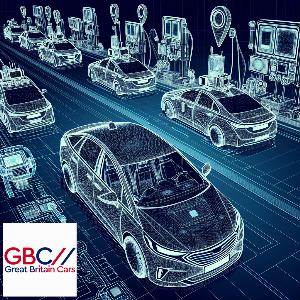
Blog about The Role of Technology in Modern Airport Transfers...
Our Clients Testimonials

Fair credits
It has fair credits, kind , wonderful ,conversational and unimaginably strong driver.
Baker





Best specialist co-op
They are best specialist co-op. They helped me a great deal in my manner.
William





Shocking skill
Astoundingly fit and trustful drivers they have . We will utilize this later on.
Lopez





Remarkable help
It is astoundingly fantastic help and it's also reliable and on time for the most part. I'm genuinely amazed by it.
Anna





Great service
It is very great service and it's also reliable and on time always. I am really impressed by it.
Aana





Trustworthy
The driver was so trustworthy and showed up at in valid time which was so great.
Lee





Easy approach
Booking of Great Britain Cars cab is easiest and totally satisfying.
Daniel





Chief drive administration
They are best in UK. They are giving chief drive administration.
Kevin





Fair values
It has fair values, kind , polite ,conversational and very helpful driver and pleasant too.
Emma





Amazing skill
Exceptionally proficient and trustful drivers they have . We will utilize this in the future.
Sarah





Dependable service
The driver was so dependable and appeared at in credible time which was so awesome.
Smith





Solid and kind
The driver was no question, areas of strength for solid kind .His way to deal with acting was simply awesome.
Wright





Great pick ups
They jolt of energy on the specific time. They give totally best.
Donald





Executive commute service
They are best in UK. They are providing executive commute service.
David





Excellent cab service
I am really inspired by this Great Britain Cars cab service. It's a best platform.
Thomas





Reliable
The driver was very reliable, helpful and kind .His behaviour was just adorable.
Michael





Fair qualities
It has fair qualities, kind , well mannered ,conversational and extremely supportive driver.
Sophia





Amenability
They have very neighborliness .They are genuinely agreeable in nature.
Jonson





Punctual
The driver was so punctual and reached in proper time which was so good.
Elizabeth





Surprising assistance
It is astoundingly incredible assistance and it's likewise dependable and on time generally. I'm truly astonished by it.
Clark




